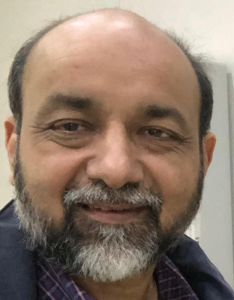
Emergency Medicine is the specialty concerned with the care of illnesses and injuries that require immediate medical attention. The corner stone of emergency care provision is Emergency Physician trained to care for the unscheduled and undifferentiated patients of all ages. These physicians are proficient is stabilizing all unstable patients and the ultimately disposing them safely.
The healthcare community atlarge is now well aware of the Emergency Physicians and that the training of EM has started in Pakistan. Yet the scope and sphere of their domain is not very clear to large part of community. Understandingly, the reason is easy to understand that for the most part, the care in the Emergency Departments (EDs) is still done was the untrained doctors. These doctors, although do an excellent job, yet not able to run the department at par with the trained doctors.
A study by Razzak et al. in 2009 showed that 85% of medical institutions were not satisfied with the care provided in the ED of their primary teaching hospital. In the same study 74% of the responders were of the opinion that other specialty doctors cannot adequately manage patients in the ED. In the study 96% of the senior management of these hospitals showed an interest to have training in EM started in their institutions if it is approved as separate specialty.
This results in continued struggle for the Emergency Department workers to fight for their turf. In order to provide the better care for each patient and keep the environment of the ED safe, we need to bring the required change to the system. The change has to be two pronged, meaning, improving the caliber of people already working in the ED, and secondly enhance the understanding of the hospital management to bring trained Emergency Physicians to the ED and give them control. With this approach, not just the care azof the patients will drastically improve, and the hospital will also be safe for all to work and provide care.
We have worked hard over a decade to improve the emergency care situation, through educating the healthcare community, as well as supporting a nascent EM training program to get on its feet. From only two programs in 2011, now there are over 10 training centers offering EM residency and the final product is now ready to serve the nation. We will today discuss the first part of the solution, which is to improve the competence of people already working in the EDs, and are not trained.
Plenty of resources are available for people to improve the understanding and care provision in emergency medicine. These include online as well as hands on training courses. Workshops, seminars and master classes have been going on for over a decade, and usually done by local as well as international community. Still not enough to reach to all areas, these activities try to provide much needed understanding as well as hands on training for people who work in the ED.
In a letter to editor, Sadaf Shaikh and Akbar Baig noted that increasing number of foreign qualified emergency medical specialists of Pakistani descent are conducting workshops and seminars in Pakistan as capacity building effort and as contribution to the field of emergency medicine in Pakistan. These activities include personally developed courses and workshops. The authors feel that in order to grow locally we need commitment, patience, persistence and faith to develop the capacity. Local people need to find local ways of doing things.
I will touch on a few initiatives that are going on consistently, despite meager resources available and the COVID that affected the whole world. These activities include, but not limited to;
- CPEM (Certification Program in Emergency Medicine. http://www.cpem.com.pk/introduction/) is 12 months competency-based training program conducted at The Indus Hospital (TIH) in Karachi, Pakistan. Done in collaboration with international and national faculty, the program is aimed to equip trainees, working in emergency departments (ED), with fundamental knowledge and clinical expertise in the practice of emergency care.
- RCEM Certification Program. This program started in 2020 and from one center, that is Rawal Medical University in Rawalpindi. After going on for the first year, now it is accepting application for two sites, RMU and PIMS (Pakistan Institute of Medical Sciences). Its 12 months program with online distant learning through RCEM portal.
- FOCUS Group. Done by a passionate group of ex-patriate EM doctors from all corners of the world, especially Australia and UK.
- ELS Australia. The Australian ELS team comes to Pakistan to teach life saving skills designed for the low resource areas of the world. This program has successfully been run in Australia and also in Sri-Lanka. ELS is working to transfer the course to local EM doctors under Pakistan Society of Emergency Medicine(PSEM).
Although things still are in the process to take shape when we talk about Emergency Medicine. But we see a lot of back ground activity and with the increasing number of competent EM doctors and nurses, we are very hopeful that the level of emergency care will definitely rise.